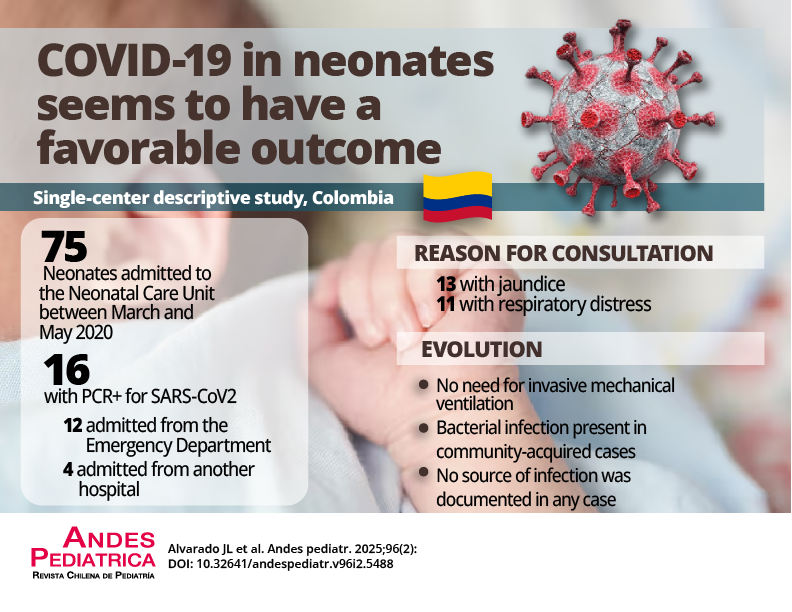Abstract
COVID-19 had a significant impact on morbidity and mortality, especially in adults. However, in children and neonates, the clinical presentation was generally less severe. Due to the severity of the disease in adults, some of the measures implemented for neonates during the pandemic proved to be misguided.
Objective: To present a series of neonatal COVID-19 cases, with post-pandemic reflections.
Patients and Method: A retrospective and descriptive study conducted in Colombia, involving 16 neonates infected with COVID-19, diagnosed by nasopharyngeal PCR testing. Of these, 12 (75%) were patients admitted from home, while 4 were referred from lower-complexity institutions. Sociodemographic and clinical variables and outcomes were analyzed.
Results: In the group of patients who came from home, the most common symptoms were jaundice in 10 (83.3%) and respiratory distress in 7 (58.3%). None of the patients required mechanical ventilation. Bacterial infections were identified in 4 cases admitted through the emergency department. Among the neonates referred from other institutions, all 4 presented with respiratory distress secondary to conditions typical of the neonatal period. The source of infection was not documented in any of the cases.
Conclusions: This study reported that these neonates with COVID-19 had a favorable clinical outcome. Bacterial infections were present in community-acquired cases. Additionally, in these cases, the neonate could serve as the index case, alerting to other possible community-acquired cases. Management should be individualized and long-term follow-up should be mandatory.

This work is licensed under a Creative Commons Attribution 4.0 International License.
Copyright (c) 2025 Revista Chilena de Pediatría






